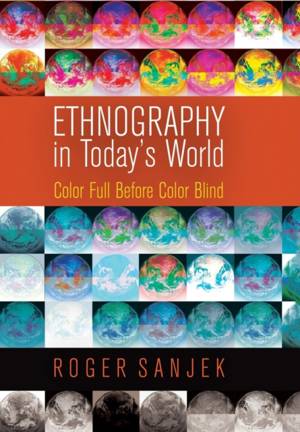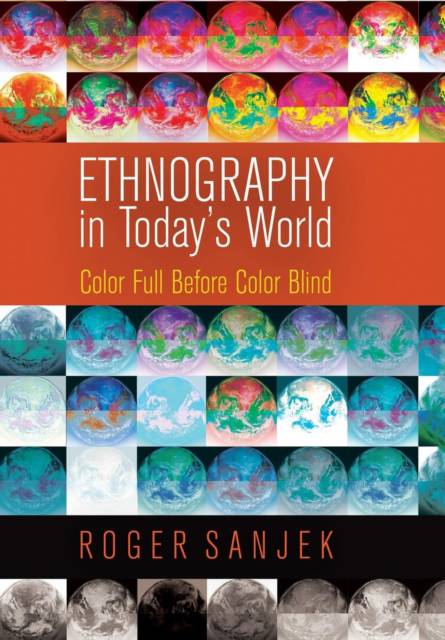
- Afhalen na 1 uur in een winkel met voorraad
- Gratis thuislevering in België
- Ruim aanbod met 7 miljoen producten
- Afhalen na 1 uur in een winkel met voorraad
- Gratis thuislevering in België
- Ruim aanbod met 7 miljoen producten
Omschrijving
In Ethnography in Today's World, Roger Sanjek examines the genre and practice of ethnography from a historical perspective, from its nineteenth-century beginnings and early twentieth-century consolidation, through political reorientations during the 1960s and the impact of feminism and postmodernism in later decades, to its current outlook in an increasingly urban world. Drawing on a career of ethnographic research across Brazil, Ghana, New York City, and with the Gray Panthers, Sanjek probes politics and rituals in multiethnic New York, the dynamics of activist meetings, human migration through the ages, and shifting conceptions of race in the United States. He interrogates well-known works from Boas, Whyte, Fabian, Geertz, Marcus, and Clifford, as well as less celebrated researchers, addressing methodological concerns from ethnographers' reliance on assistants in the formative days of the discipline to contemporary comparative issues and fieldwork and writing strategies.
Ethnography in Today's World contributes to our understanding of culture and society in an age of globalization. These provocative examinations of the value of ethnographic research challenge conventional views as to how ethnographic fieldwork is and can be conceived, conducted, contextualized, and communicated to academic audiences and the twenty-first-century public.Specificaties
Betrokkenen
- Auteur(s):
- Uitgeverij:
Inhoud
- Aantal bladzijden:
- 312
- Taal:
- Engels
- Reeks:
Eigenschappen
- Productcode (EAN):
- 9780812245455
- Verschijningsdatum:
- 31/12/2013
- Uitvoering:
- Hardcover
- Formaat:
- Ongenaaid / garenloos gebonden
- Afmetingen:
- 155 mm x 231 mm
- Gewicht:
- 566 g

Alleen bij Standaard Boekhandel
Beoordelingen
We publiceren alleen reviews die voldoen aan de voorwaarden voor reviews. Bekijk onze voorwaarden voor reviews.












